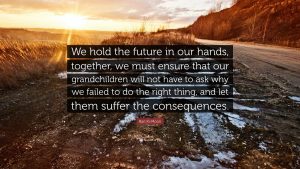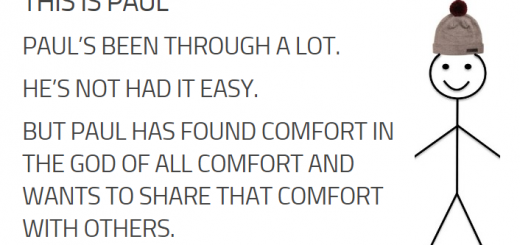Say hello to Micah
Today we meet Micah. A prophet of God. He was around at the same time as Isaiah and they both speak a similar message, but they come from very different backgrounds. Isaiah mixes with the upper classes in Jerusalem, but Micah lives in a tiny village in the rural lowlands of Judah. He lives in the countryside and knows firsthand the plight of the poor.
Micah foresees the destruction of both the northern kingdom of Israel and the southern kingdom of Judah. But he sees further. Beyond this judgement and suffering to a new kingdom. A new everlasting kingdom of peace.
And so in Micah 1, God’s word is for Samaria and Jerusalem. The capital of Israel and the capital of Jerusalem. God is speaking to all of His people – actually to everyone who lives and has ever lived.
Hear, you peoples, all of you,
listen, earth and all who live in it,
that the Sovereign Lord may bear witness against you,
the Lord from his holy temple. Micah 1:2
Listen and hear. Take notice. God has something to say.
God is coming, entering into the world that He created. He is all-powerful, more powerful than anything this world has to offer.
The mountains melt beneath him
and the valleys split apart,
like wax before the fire,
like water rushing down a slope. Micah 1:4
God is coming to deal with His people, to set right what has gone wrong. Micah can clearly see a day when Samaria will become ‘a heap of rubble, a place for planting vineyards’ and it’s breaking his heart. While everyone is going about their daily business, oblivious to what is going to happen, Micah knows, Micah sees. And Micah grieves.
Because of this I will weep and wail;
I will go about barefoot and naked.
I will howl like a jackal
and moan like an owl. Micah 1:8
It makes me think about what we’re doing right here, right now. Fiddling while Rome burns, that’s the expression, isn’t it? Take the environment, for example. The realities of climate change. The effects of the destruction of the rain forests. We turn away and carry on with our daily lives oblivious of the future we are creating for ourselves and for our children. But what’s going on on a worldwide scale, a universe-wide scale, is terrifying and heart-breaking. There are modern-day prophets out there who know too much, who’ve seen too much, who are shouting out to a world that won’t listen, to politicians and world leaders who prefer to look the other way, who prefer to listen to those who undermine the research, the inconvenient truth.
Micah knows that there is nowhere to escape from the coming judgement. He takes cities from around the region as examples of what is to come. It’s a play on words. It’s all in the name. He takes the meaning for the names of the cities – or what they sound a bit like in Hebrew – and makes a point about each one.
Gath: sounds like the Hebrew for tell. And so Micah says ‘Tell it not in Gath’.
Beth Ophrah: means house of dust. And so here, the people will roll in the dust.
Shaphir: means pleasant. It will be far from pleasant here, as the people pass by naked and in shame.
Zaanan: sounds like the Hebrew for come out. These people will not come out.
Maroth: sounds like the Hebrew for bitter. Here the people will writhe in pain, waiting for relief.
Akzib: means deception. This town will prove deceptive to the kings of Israel.
Mareshah: sounds like the Hebrew for conqueror. God will bring a conqueror against them.
Do you get the picture?
Nowhere is safe. No one is safe. There is nowhere to hide. Don’t kid yourself that everything is going to be OK. Because it isn’t.
Shave your head in mourning
for the children in whom you delight;
make yourself as bald as the vulture,
for they will go from you into exile. Micah 1:16
Think of your children. Think of your grandchildren.
What world are we creating for the next generation? That’s what Micah was asking. What consequences are we bringing on future generations?
Much of what we hear encourages us to live in the present. I’m all for that, being mindful and fully present. But that doesn’t mean that we have no thought for the future, for the consequence of our actions.
We have to live with one eye on the future, surely.
We have to take responsibility for the world we’re creating.













